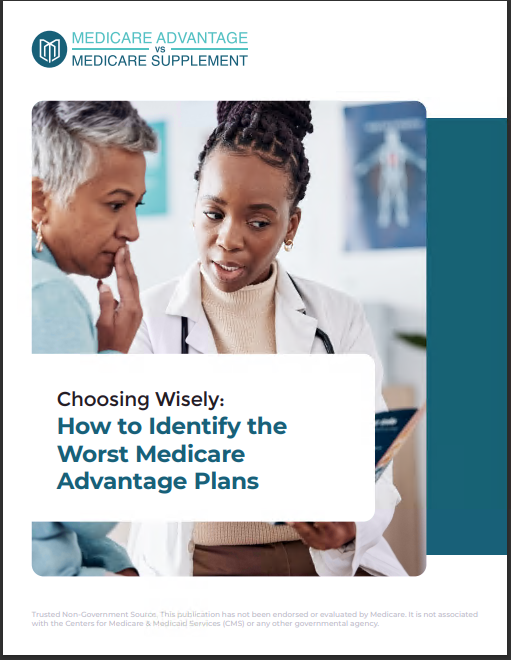Key Takeaways
- Medicare Savings Programs (MSPs) can significantly reduce healthcare costs for eligible individuals by covering premiums, deductibles, and other out-of-pocket expenses.
- Understanding the eligibility criteria and applying effectively can help beneficiaries maximize the benefits offered by MSPs.
Understanding Medicare Savings Programs: Tips to Maximize Your Benefits
Medicare Savings Programs (MSPs) provide essential financial assistance to individuals with limited income and resources, helping them cover healthcare costs such as premiums, deductibles, and other out-of-pocket expenses. By understanding how these programs work and knowing how to maximize the benefits, beneficiaries can significantly reduce their healthcare expenses. This article explores the various aspects of MSPs, including an overview of the programs, eligibility criteria, application process, key benefits, and strategies for maximizing savings.
Overview of Medicare Savings Programs
Medicare Savings Programs are designed to help beneficiaries with limited financial resources cover some of the costs associated with Medicare. These state-administered programs are funded jointly by federal and state governments and are crucial for ensuring that Medicare beneficiaries can access necessary healthcare services without facing prohibitive costs.
There are four main types of MSPs:
- Qualified Medicare Beneficiary (QMB) Program: The QMB program helps pay for Medicare Part A and Part B premiums, deductibles, coinsurance, and copayments. It offers the most comprehensive coverage among the MSPs.
- Specified Low-Income Medicare Beneficiary (SLMB) Program: The SLMB program helps pay for Medicare Part B premiums for individuals with slightly higher incomes than those eligible for the QMB program.
- Qualifying Individual (QI) Program: The QI program also assists with Medicare Part B premiums. It is available on a first-come, first-served basis due to limited funding, and individuals must reapply each year.
- Qualified Disabled and Working Individuals (QDWI) Program: The QDWI program helps pay for Medicare Part A premiums for certain disabled individuals who have returned to work and are under the age of 65.
Eligibility Criteria for Medicare Savings Programs
Eligibility for Medicare Savings Programs is determined based on income and resource limits, which can vary slightly by state. However, federal guidelines provide a general framework for understanding who qualifies for these programs.
Income Limits
Income limits are based on the Federal Poverty Level (FPL) and include various sources of income such as wages, Social Security benefits, and pensions. For 2024, the approximate income limits are:
- QMB: $1,153 per month for an individual and $1,546 per month for a couple.
- SLMB: $1,379 per month for an individual and $1,851 per month for a couple.
- QI: $1,549 per month for an individual and $2,080 per month for a couple.
- QDWI: $4,615 per month for an individual and $6,189 per month for a couple.
Resource Limits
Resource limits include money in checking or savings accounts, stocks, bonds, and other assets. Certain items, such as the home you live in, one car, burial plots, and up to $1,500 for burial expenses, are not counted as resources. For 2024, the approximate resource limits are:
- QMB, SLMB, and QI: $9,360 for an individual and $14,800 for a couple.
- QDWI: $4,000 for an individual and $6,000 for a couple.
How to Apply for Medicare Savings Programs
Applying for Medicare Savings Programs involves several steps, and understanding the process can help ensure a smooth application.
Gather Documentation
Before applying, collect necessary documents, including:
- Proof of income (e.g., Social Security award letters, pay stubs)
- Proof of resources (e.g., bank statements, investment records)
- Proof of residency (e.g., utility bills, lease agreements)
Contact Your State Medicaid Office
Medicare Savings Programs are administered by state Medicaid offices. Contact your state Medicaid office to obtain an application and learn about specific state requirements. The office can provide guidance on the application process and answer any questions you may have.
Complete and Submit the Application
Fill out the application form thoroughly, providing all required information and documentation. Ensure that you include accurate and up-to-date information to avoid delays or denials. Submit the completed application to your state Medicaid office.
Follow Up
After submitting your application, follow up with the Medicaid office to ensure it is being processed. Be prepared to provide any additional information or documentation if requested. Following up can help expedite the approval process and ensure that you receive benefits as soon as possible.
Key Benefits of Medicare Savings Programs
Medicare Savings Programs offer several significant benefits that can help beneficiaries manage their healthcare costs more effectively.
Premium Assistance
One of the primary benefits of MSPs is assistance with Medicare premiums:
- Part A Premiums: The QMB and QDWI programs help pay for Medicare Part A premiums, which cover inpatient hospital stays, skilled nursing facility care, hospice care, and some home health care.
- Part B Premiums: The QMB, SLMB, and QI programs help pay for Medicare Part B premiums, which cover outpatient care, doctors’ services, preventive services, and some home health care.
By covering these premiums, MSPs help beneficiaries save a significant amount of money annually.
Coverage of Out-of-Pocket Costs
MSPs also provide assistance with out-of-pocket costs, reducing the financial burden on beneficiaries:
- Deductibles: The QMB program helps pay for Medicare Part A and Part B deductibles. Deductibles are the amounts you must pay out-of-pocket before Medicare starts to pay its share.
- Coinsurance and Copayments: The QMB program also helps pay for coinsurance and copayments. Coinsurance is the percentage of costs you pay after meeting your deductible, and copayments are fixed amounts you pay for specific services.
This coverage can lead to substantial savings, especially for individuals who require frequent medical care.
Extra Help with Prescription Drug Costs
Eligibility for an MSP automatically qualifies beneficiaries for Extra Help (also known as the Low-Income Subsidy) with Medicare prescription drug plan costs. Extra Help can significantly reduce or eliminate prescription drug costs, including:
- Monthly Premiums: Extra Help covers part or all of the monthly premiums for a Medicare Part D prescription drug plan.
- Annual Deductibles: Extra Help covers part or all of the annual deductibles for a Part D plan.
- Copayments/Coinsurance: Extra Help reduces the copayments or coinsurance for prescription drugs. In 2024, beneficiaries may pay no more than $4.15 for generic drugs and $10.35 for brand-name drugs covered by their Part D plan.
Strategies for Maximizing Your Medicare Savings
To make the most of Medicare Savings Programs, consider implementing the following strategies:
Annual Review
Income and resource limits for MSPs can change annually. Review your eligibility each year during the Medicare Open Enrollment Period to ensure you continue to qualify. If your circumstances change, reapply or adjust your application to reflect your current situation.
Understand Overlapping Benefits
If you qualify for both Medicaid and an MSP, coordinate with your state Medicaid office to understand how the benefits interact. This can help you avoid any gaps in coverage and ensure you receive the maximum benefits available.
Seek Assistance
Many organizations, such as the State Health Insurance Assistance Program (SHIP), provide free counseling to help you understand and apply for MSPs. These organizations can guide you through the application process, help you gather necessary documentation, and answer any questions you may have.
Stay Informed
Keep up to date with any changes in Medicare policies, income and resource limits, and program benefits. Staying informed can help you make timely adjustments to your application and ensure that you continue to receive the benefits you are entitled to.
Conclusion
Medicare Savings Programs provide essential financial assistance to eligible individuals, helping to cover premiums, deductibles, coinsurance, and copayments. Understanding the eligibility criteria and benefits of these programs can lead to significant healthcare savings. By gathering the necessary documentation, applying through your state Medicaid office, and seeking assistance from organizations like SHIP, you can take full advantage of the benefits offered by MSPs. Regularly reviewing your eligibility and understanding how to maximize these benefits will ensure you receive the support you need to manage your healthcare costs effectively.
Contact Information:
Email: [email protected]
Phone: 4125559012










